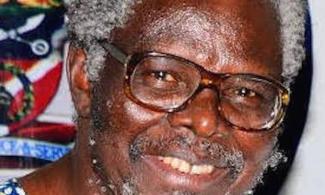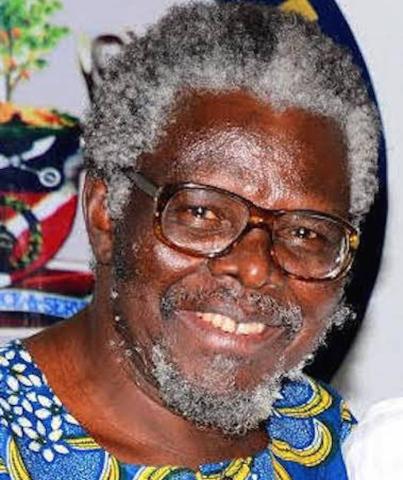
I have here isolated Jerry Rawlings and Bassey Ekpo Bassey because of my particularly intense ideological and political relationship with each of them at certain periods in my more activist past. Here I mean relationships of specific compatibility and absolute trust, the type that early Marxist revolutionaries regarded very highly in proposing the composition of groups for sensitive or delicate assignments.
This is a combined personal tribute to two personages: Flt-Lt Jerry Rawlings and Comrade Bassey Ekpo Bassey. I have isolated them from a longer list of personages that came to my mind to publicly remember—at this time. The other personages, all comrades, who will also be publicly remembered in no distant future, include Curtis Joseph, Arthur Nwankwo, Olu Adebayo, Bjorn Beckman, Herbert Ekwe-Ekwe, Ingrid Essien-Obot, Yima Sen and Balarabe Musa.
I have here isolated Jerry Rawlings and Bassey Ekpo Bassey because of my particularly intense ideological and political relationship with each of them at certain periods in my more activist past. Here I mean relationships of specific compatibility and absolute trust, the type that early Marxist revolutionaries regarded very highly in proposing the composition of groups for sensitive or delicate assignments.
But side by side with what Jerry Rawlings and Bassey Ekpo Bassey have in common in this combined tribute are things that separate them. One of them is this: Whereas I know that Jerry Rawlings is dead, I can only say that Bassey Ekpo Bassey has travelled for a long time. This is because my knowledge of the latest segment of Bassey’s life is limited. And this limitation reflects the limitation of my knowledge of the politics of the revered traditional institution which he entered—a politics that dominated his life before he travelled. Beyond this hard difference between Rawlings and Bassey are the differences of nationality and age as well as differences of location, date and circumstances of my first meetings with them.
Now, should a young comrade or compatriot wonder why Jerry Rawlings, a recently departed Ghanaian Head of State, would qualify to be lumped together with my comrades I would, in turn, return to the need to return to serious study and appreciation of history. I would thereafter go back to the time, about 40 years ago, that Rawlings exploded on the scene, the immediate impact of that explosion in Ghana and beyond, and the possibilities (I mean just possibilities) that the explosion threw up in the struggle against neo-colonial capitalism, corruption, imperialism and dictatorship in Africa. Rawlings’ dramatic emergence drew several of the continent’s best-known revolutionaries to Ghana.

However, should an older Nigerian Leftist raise the issue of Rawlings’ inclusion I would go beyond my answer to the hypothetical question from a young comrade and ask the older Leftist (better if she or he is a Marxist) to consider the following 27 randomly selected list of “big names” in modern political history of Marxism and Marxist Revolution: Vladimir Lenin, Joseph Stalin, Rosa Luxemburg, Alexandra Kollantai, Leon Trotsky, Broz Tito, Nikita Krushchev, Kim Il-Sung, Mao Zedung, Liu Shao Chi, Ho Chi Minh, Fidel Castro, Che Guevara, Amilcar Cabral, Eskor Toyo, Ikenna Nzimiro, Ola Oni, Balarabe Musa, Paul Sweezy, Hugo Chavez, Antonio Gramsci, Ernest Mandel, Santiago Carrillo, Pol Pot, Salvador Allende, Imre Nagy (Hungary, 1956), and Alexander Dubcek (Czechoslovakia, 1968). And my first question will be: Which of the personages listed above was not a Marxist? My second question: What does the selection tell us about the complexity and expanse of the composite universe of Marxism and Marxists?
Although this is a combined personal tribute to two personages, the circumstances in which I met them were not personal. It is these circumstances and what happened immediately after our first meetings—rather than the personages’ careers and larger lives—that are here remembered. I met Comrade Bassey Ekpo Bassey in Zaria at the end of July 1977. This was at the start of that year’s All Nigeria Socialist Conference, otherwise known, in the history of Nigeria’s Socialist Movement, as the Zaria Conference. He was just below 28; and I was just above 31. I met Jerry Rawlings in Accra, Ghana in January 1982 shortly after a particular form of armed popular uprising, principally in the capital city, at the end of the preceding year. I was 35 and a half; and I took the slim Air Force pilot in combat uniform to be about the same age with me.
In my first meeting with Jerry Rawlings in Burma Military Camp, Accra, he challenged me to ask Ghanaian intellectuals, mainly academics, in economic exile in Nigeria to return to Ghana and join the revolution. He said he was prepared to serve the revolution only as a fighter pilot. On my return I was able to persuade some of them to return. What happened on their return—and, indeed, what happened to the incipient revolution—is another story. In all my revolutionary expeditions to Ghana, I insisted, and Rawlings was persuaded, that the regime should only be responsible for my accommodation and security. Nothing more.
Comrade Bassey and I came separately to the 1977 Zaria Conference from Calabar with nothing more than the knowledge of each other’s existence as young Nigerian Marxists. He was the Political Editor of the Cross River State-owned Nigerian Chronicle and a popular Leftist columnist of the newspaper. He called his weekly column “Unpopular Essays”, inspired, perhaps, by Bertrand Russell’s collected essays of the same title. I, myself, had just relocated from Ode-Omu in present Osun State after a 12-month rural conscientisation. I came to Calabar to join my wife, Bene, who had also just been confirmed a lecturer in the Department of Biological Sciences of the University of Calabar.
In Zaria Bassey Ekpo Bassey and I were introduced by an older comrade from Calabar, Chief Ernest Etim Bassey, a veteran journalist trained in Eastern Europe, a Leftist activist and self-determination agitator. As soon as Comrade Ernest mentioned my name, Bassey Ekpo Bassey, rather than take my extended hand, confronted me: “I heard you are a Trotskyite.” I withdrew my hand and responded: “I learnt you are a Stalinist.” But the older comrade persuaded us to shake hands. To cut a long story short, Bassey and I not only settled our “differences” at the conference, but travelled together in his Volkswagen Beetle car out of Zaria at the end of the conference. At Onitsha, I alighted and took a bus to see my mother in our hometown, Nnobi, in the present Idemmili South Local Government Area of Anambra State. Bassey continued to Calabar.
To cut this long still shorter, a few days after the Zaria Conference, the Calabar Group of Socialists (CGS) was formed and the Movement for Progressive Nigeria (MPN) was transformed into a radical Students’ Movement in the University of Calabar. Bassey and I had discussed these steps on our way from Zaria to Onitsha. Now joined by Bene, we hit the ground running, as they say. Agenda? Peoples Power and Socialist Revolution.
Let me dramatise the closeness between Bassey Ekpo Bassey and myself with the story of a real domestic “accident.” From late 1970s to late 1990s three comrades could come into the bedroom which I shared with Bene without knocking. These were Biodun Jeyifo (BJ), Assim Otto Assim Ita and Bassey Ekpo Bassey. One day Bassey came in and almost met my wife and I in an early morning “encounter.” Rather than scuttle away in embarrassment, he merely chuckled, quietly closed the door, went to the living room, and asked one young person to prepare him a cup of “black” coffee. He was calmly taking the coffee and reading a newspaper when I came out to join him.
In conclusion: How did Comrade Bassey Ekpo Bassey and I resolve our “Trotskyism-Stalinism” allegations? When we returned to Calabar from Zaria I formally rejected the “Trotskyism” charge but admitted that I had been influenced by Leon Trotsky just as I had been influenced by several other early revolutionary Marxists with Lenin as my primary ideological inspirer outside Marx and Engels. Much later, I presented Bassey with one of Trotsky’s earliest and most romantic formulations of his theory of “Permanent Revolution.” Here it goes: “The permanent revolution, in the sense which Marx attached to the conception, means a revolution which makes no compromise with any form of class rule, which does not stop at the democratic stage, which goes over to socialist measures and to war against reaction from without, that is, a revolution whose every stage is anchored in the preceding one and which can only end in the complete liquidation of all class society.”
We both accepted this formulation and agreed to ignore all labels.
Madunagu, mathematician and journalist, writes from Calabar, Cross River State, Nigeria.